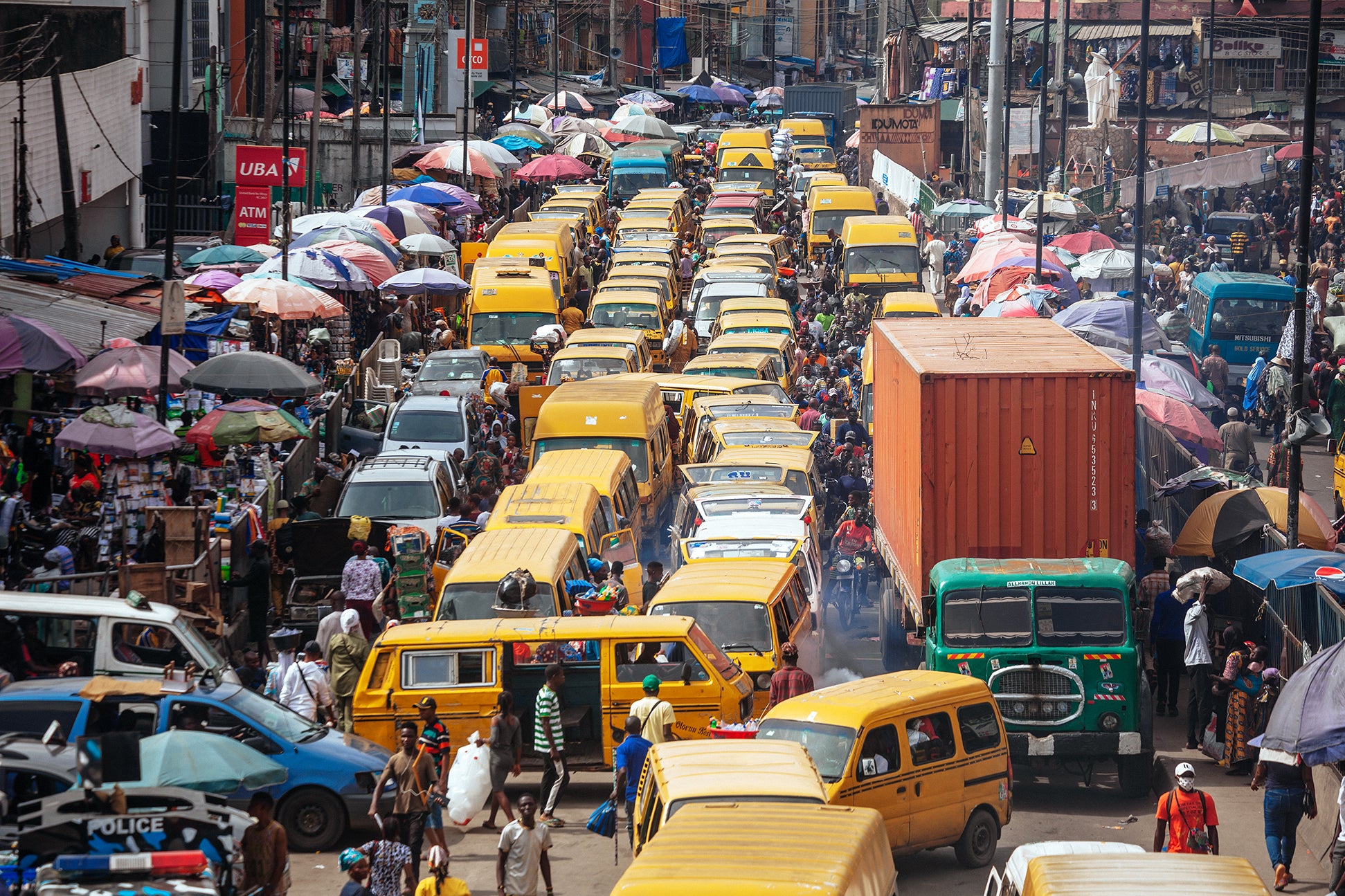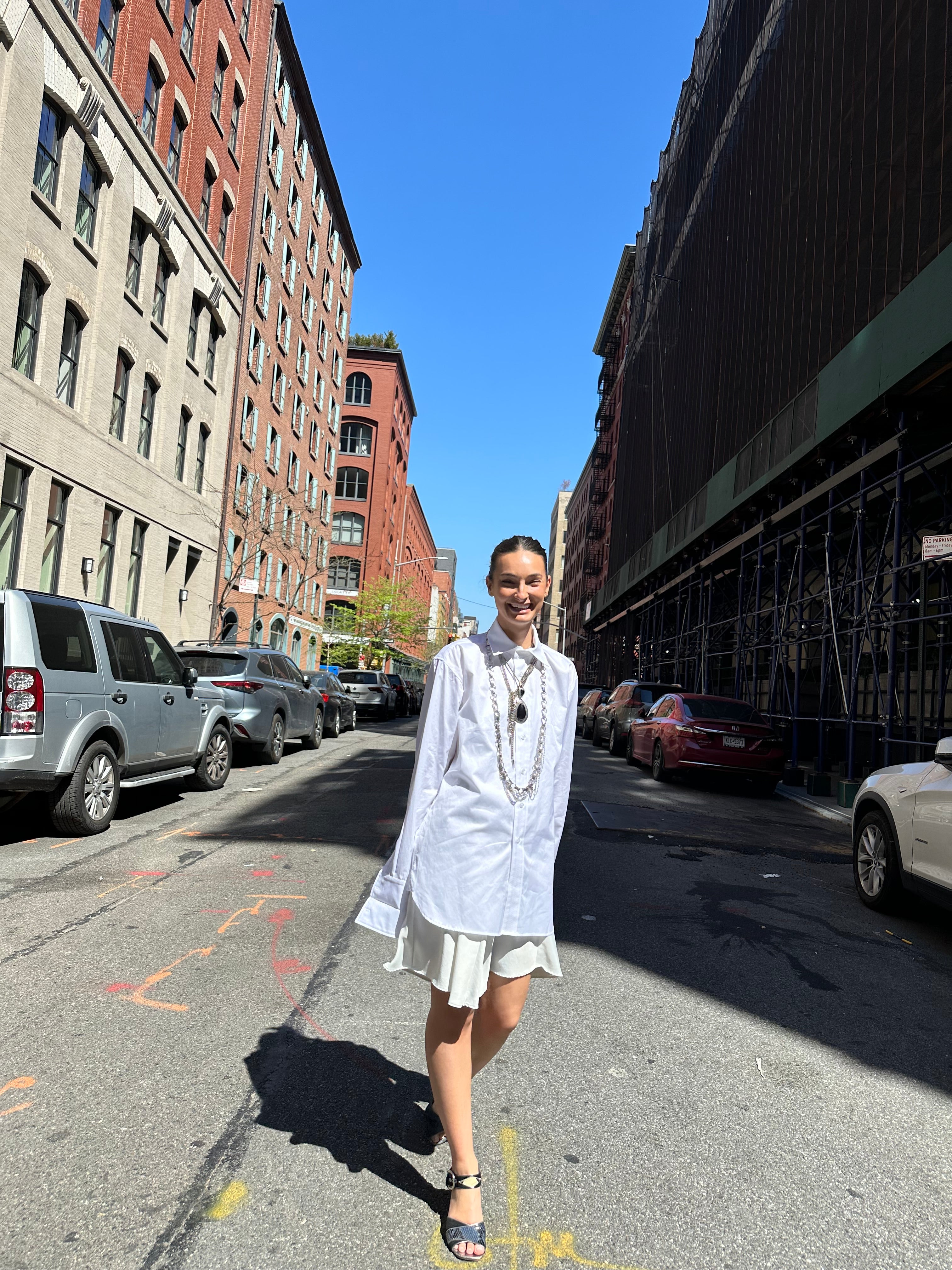Lagos is a city that makes you feel alive as soon as you arrive. Africa’s third-largest city, set among lagoons and islands on Nigeria’s southwest coast, is dynamic, enterprising and colourful. Until 1991 it was Nigeria’s capital city, but although the federal government relocated to Abuja, the centre of gravity remains firmly in Lagos.
The metropolis’s reputation for uncompromising toughness is expressed in the urban myth about a no-nonsense ‘welcome’ sign that reads: “This is Lagos”. But there’s some truth to this lore. Lagos exists on its own terms without bending to tourists – and that is what makes a visit here such an authentic experience.
The best way to get around is by Uber or, if you’ve got time to spare, jump on a keke (motorised tricycle) and watch the world go by as you trundle along.
Lagos Island is the traditional heart of the city. Here you’ll find an example of the houses built by Brazilian former slaves and their descendants who returned to Nigeria in the 19th century. Not too far down the road is Balogun Market, a sprawling warren of African fabrics, shoes and other items where sharp-tongued ‘market women’ haggle with you for the right price.
Continue past the old racecourse to Military Street where the Rele Gallery, housed in a cute and narrow modernist building, displays contemporary art by Nigerian artists such as Victor Ehikhamenor.
Further to the east is upmarket Ikoyi. On Awolowo Road you’ll find Jazzhole bookstore, a serene place to enjoy a coffee while perusing its vinyl record collection and eclectic range of books. Near the island’s northern shore is the wealthy Modupe Alakija Crescent, a tree-lined street filled with opulent mansions. Close by is Omenka Gallery, which exhibits contemporary artworks. Its tranquil, plant-filled garden overlooks the lagoon and is a great place to chill and enjoy a drink.
To the south of Ikoyi is Victoria Island, which has the biggest concentration of Lagos’s top restaurants and hotels. Here you’ll find several beach resorts, such as Moist Beach Club. Its breezy bamboo-walled dining area opens out onto a swimming pool and the beach.
For a taste of traditional Nigerian food, head to restaurants like Yellow Chilli. Try dishes such as meat and jollof rice, or yam pottage (boiled yam mashed with peppers and leafy greens and – sometimes – plantain). You can also try naturally brewed palm wine, a delicious, alcoholic beverage distilled from the sap of the palm tree.
Not far from here is Alara, a gorgeous boutique designed by world-famous architect David Adjaye. This upscale store sells jewellery, high-end leather goods, art books, and clothes by Yves Saint Laurent and other top brands.
For respite from the heat, watch a ‘Nollywood’ movie. The Nigerian film industry is one of the most prolific in the world and offers a partial insight into Nigerian cultural values. Catch a showing at one of the chain of modern multiplexes dotted around the city such as Genesis Cinemas.
Lagos’s nightlife is the best in the country, with new venues opening every year. LiVE! Lounge opened on Idejo Street in 2020. It hosts live music and stand-up comedy. The food and cocktails are fantastic too.
On the Lekki peninsula to the east of Victoria Island, artist Nike Okundaye runs the Nike Centre for Art and Culture. Acclaimed for her colourful batiks and paintings, Nike has revived the dying art of weaving and dyeing. She exhibits in an cavernous, four-storey gallery filled with contemporary and traditional Nigerian art pieces. Perusing her four floors of paintings, adire cloths, batik dyeing, wood carvings and embroidery will immerse you in the culture of the Yoruba people.
No trip to Lagos would be complete without a visit to the former home of the legendary singer Fela Kuti, pioneer of Afrobeat. Fela famously and courageously used his music to challenge the military dictatorship in the 1970s and ’80s. His former home in the Ikeja district on the mainland is now the Kalakuta Republic Museum. On display are his preserved bedroom, his guitars, vintage family photos and even his trademark underwear. Hang out on the breezy rooftop terrace and you might catch a band rehearsal or performance.
November is the highlight of the cultural calendar, when Lagos’s international entertainment and arts scene explodes into life: Lagos Fashion Week, the Art X Festival and the Aké Books and Art Festival attract international artists and writers from the continent and diaspora.
Of course, Lagos is a city of haves and millions more have-nots. Yet, even in poverty Lagosians can be fascinatingly resourceful. Makoko (known as the ‘Venice’ of Nigeria) is an intriguing shanty town built on wooden stilts over the lagoon. What once started as a village for fishermen has grown into a 100,000-strong community, which you can visit by canoe.
If you need a break from the urban jungle then there’s the real jungle at the Lekki Conservation Centre, a nature reservation on the Lekki peninsula, where birds, monkeys and turtles roam in 78 hectares. It’s a reminder of what Lagos once looked like, and a great way to enjoy a breather from this unforgettable city.

